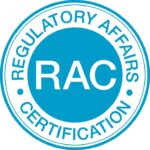Powerful Reasons Why Quality Control Analysts Are the Unsung Heroes Behind Every Safe Product
Quality Control Analysts: In a world flooded with products—from life-saving medications and nutritious foods to skincare and electronics—how do we ensure safety, purity, and effectiveness? The answer lies in the vigilant eyes and scientific minds of Quality Control Analysts.
- 📜 History of the Quality Control Analyst Profession
- ⏳ Timeline Highlights of QC Analyst Evolution
- 🔬 Who is a Quality Control Analyst?
- 📊 7 Key Facts About Quality Control Analysts
- 🧪 Day-to-Day Work of a QC Analyst
- 🌟 Why QC Analysts Matter
- 🩺 Importance in Daily Life
- 💬 Frequently Asked Questions (FAQs)
- 1. What qualifications are needed to become a QC Analyst?
- 2. Is QC the same as QA?
- 3. Where do QC Analysts work?
- 4. Is this a stressful job?
- 5. Can QC Analysts grow into other roles?
- 🎉 Wishing the Quality Custodians
- 🎯 Important Observances and Practices
- 🌍 Why QC Analysts Are Crucial to Society
- 📌 Summary of Key Points
- 🌟 Conclusion: Guardians of Consumer Trust
These professionals are often invisible to the public but play a pivotal role in protecting our health, ensuring compliance with standards, and upholding the integrity of entire industries.
Let’s take a human-centric, detailed journey into the life, legacy, and importance of a Quality Control Analyst—a profession that deserves far more recognition than it receives.
📜 History of the Quality Control Analyst Profession
The concept of quality control dates back centuries, but its modern form evolved alongside industrialization and scientific advancement.
🔍 Historical Evolution
Ancient Civilizations: Early quality checks existed in guilds where craftsmanship was judged before sale.
1910s–1920s: Frederick W. Taylor and Walter A. Shewhart introduced statistical quality control methods during the industrial revolution.
1940s: Post-World War II, Deming and Juran spread QC practices in Japan, revolutionizing global manufacturing standards.
1970s–1990s: With the rise of the pharmaceutical and biotech industries, QC analysts became essential gatekeepers of health and safety.
2000s–Present: With globalization and regulatory harmonization (like ICH, WHO GMP, ISO), QC roles are now globally standardized and critical.
⏳ Timeline Highlights of QC Analyst Evolution
| Year | Milestone |
|---|---|
| 1924 | Shewhart Control Chart introduced for monitoring process variation. |
| 1961 | ISO standards launched, emphasizing quality across industries. |
| 1978 | WHO publishes GMP guidelines, spotlighting QC in pharmaceuticals. |
| 1995 | ICH guidelines harmonize international QC practices. |
| 2010s | QC expands to biotech, cosmetics, nutraceuticals, and more. |
| 2020+ | Pandemic highlights QC’s role in vaccine, drug, and test kit production. |
🔬 Who is a Quality Control Analyst?
A Quality Control (QC) Analyst is a trained professional who performs analytical tests on raw materials, in-process products, and final products to ensure they meet required standards of identity, strength, quality, and purity.
They work in labs, meticulously examining data, operating high-precision instruments, and making critical decisions that determine whether a product is safe to release.
📊 7 Key Facts About Quality Control Analysts
QC Analysts must adhere to cGMP (current Good Manufacturing Practices) as per global guidelines.
They use sophisticated instruments like HPLC, GC, UV-Vis Spectrophotometers, IR Spectroscopy, and more.
Every batch released to the public has passed through their hands.
They often work under high pressure with tight release timelines.
QC Analysts maintain detailed documentation and reports—traceability is essential.
Their job ensures regulatory compliance, avoiding recalls, legal actions, and health hazards.
In critical sectors like pharma, food, water, and chemicals, they are the first line of defense.
🧪 Day-to-Day Work of a QC Analyst
A QC analyst’s role is diverse and intellectually demanding. Here’s what a typical day might involve:
Sampling and testing raw materials upon arrival
Conducting chemical and microbiological tests
Preparing reagents, standard solutions, and calibrating instruments
Testing products at different stages—raw, in-process, and final
Ensuring all procedures follow SOPs (Standard Operating Procedures)
Documenting results in LIMS (Laboratory Information Management Systems)
Collaborating with QA, Production, and Regulatory teams
Investigating any OOS (Out of Specification) results
🌟 Why QC Analysts Matter
Without QC analysts:
Medicines could be dangerous, ineffective, or mislabelled.
Food products could be contaminated, spoiled, or mislabeled.
Cosmetics could cause allergies, reactions, or even permanent damage.
Industrial materials could fail, causing safety hazards.
QC analysts are the quality conscience of manufacturing—they catch the errors before the public is harmed.
🩺 Importance in Daily Life
You don’t see them on product labels, but their impact is everywhere:
The sanitizer you use? Tested for alcohol content.
That baby formula you trust? Passed microbial and chemical QC.
Your monthly medicines? Assessed for assay, dissolution, and uniformity.
Your bottled water? Checked for toxins and pH balance.
Their work ensures your safety, health, and peace of mind.
💬 Frequently Asked Questions (FAQs)
1. What qualifications are needed to become a QC Analyst?
Typically a B.Sc or M.Sc in Chemistry, Microbiology, Biotech, or Pharmacy. Knowledge of analytical techniques is essential.
2. Is QC the same as QA?
No. QC is testing the product, while QA ensures that the entire process and documentation meet quality standards.
3. Where do QC Analysts work?
In pharmaceutical companies, biotech firms, food processing units, water testing labs, cosmetics, and even FMCG industries.
4. Is this a stressful job?
It can be, due to the precision, documentation, and responsibility involved, but it is highly respected and rewarding.
5. Can QC Analysts grow into other roles?
Yes. They can grow into QA roles, Regulatory Affairs, R&D, Validation, or even Management, depending on experience and further training.
🎉 Wishing the Quality Custodians
“To every Quality Control Analyst—your quiet dedication protects millions of lives. Thank you for being the eyes of safety and the voice of standards!”
Celebrate them during:
National Pharmacy Week
World Quality Day (second Thursday of November)
Science and Technology Recognition Weeks
Companies should offer:
Awards for excellence
Employee spotlight features
Training and skill development programs
🎯 Important Observances and Practices
Though not always in the spotlight, QC analysts’ work aligns with:
World Health Day (April 7)
Global Handwashing Day (Oct 15 – for microbiological quality)
GMP Awareness Campaigns
Observing these days can create greater public and industry recognition of the profession.
🌍 Why QC Analysts Are Crucial to Society
They protect the public from dangerous defects and contamination.
Their diligence prevents product recalls, lawsuits, and brand damage.
They uphold global standards, allowing safe trade and exports.
Their reports are used by government regulators for inspections and approvals.
Whether it’s a tablet or a toothpaste, they ensure that every product keeps its promise.
📌 Summary of Key Points
QC Analysts uphold product integrity through rigorous testing.
Their role is scientific, critical, and regulated by global standards.
They work across industries from pharma to food to cosmetics.
Their impact is invisible but deeply embedded in daily life.
They are gatekeepers of trust, health, and quality in our modern world.
🌟 Conclusion: Guardians of Consumer Trust
Every time we use a product and trust that it’s safe, we’re placing that trust in a Quality Control Analyst.
They don’t make headlines, but they prevent disasters.
They don’t wear lab coats for fashion, but for precision and responsibility.
They may work behind glass doors, but their efforts reach every home.
“To the QC Analyst who ensures safety drop by drop, test by test—your silence speaks volumes. Your work is invisible but invaluable.”








